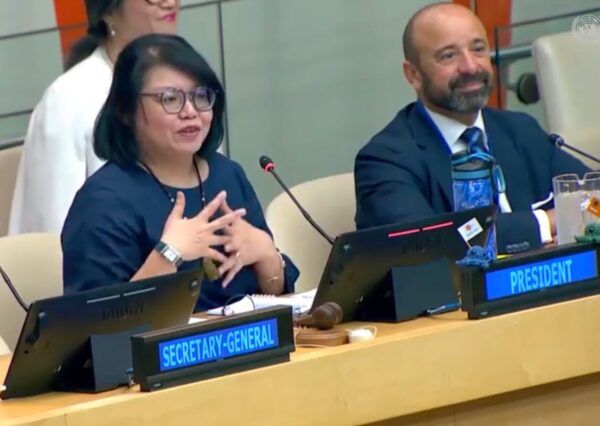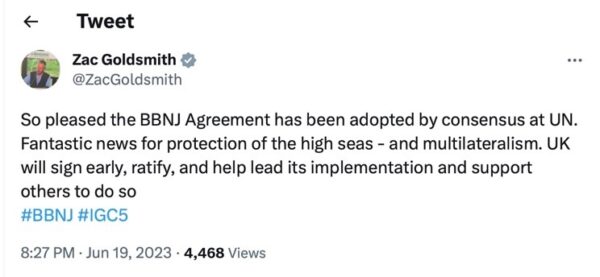The world’s first international treaty to protect the high seas was adopted at the United Nations on Monday 19th June. The commonly referred to ‘High Seas Treaty’, or more fully the Intergovernmental Conference on Marine Biodiversity of Areas Beyond National Jurisdiction (BBNJ / ABNJ), is the legal framework that aims to ensure the conservation and sustainable use of marine biological diversity of areas beyond national jurisdiction. A key tool in the treaty will be the ability to create protected marine areas in international waters.
UN Secretary-General Antonio Guterres told delegates “The ocean is the lifeblood of our planet and today you have pumped new life and hope to give the ocean a fighting chance”.
Following more than 15 years of discussions, including four years of formal negotiations, UN member states finally agreed on the text for the treaty in March after a flurry of final, marathon talks. The text, since frozen, has been pored over by the UN’s lawyers and translators to make sure it matches in the body’s six official languages.
The treaty is seen as crucial to countries protecting 30 percent of the world’s oceans and lands by 2030, as agreed by world governments in a separate historic accord reached in Montreal in December. With it, “We are giving ourselves the means to achieve” the 30 percent target, said the French Secretary of State for the Sea, Herve Berville.
The next steps
The treaty will only go into effect 120 days after it is ratified by at least 60 U.N. member nations individually. It is hoped that the requisite 60 ratifications would be in-hand by the next U.N. Ocean Conference, set to convene in the summer of 2025.
“As with all treaties, ratification is the key to bringing it into force, and only then can we implement the benefits accruing. All parties should work towards this being achieved by the time of the next UN Ocean Conference” the U.N.’s Peter Thomson, the U.N. Secretary-General’s Special Envoy for the Oceans, told CBS News.
Signatory countries will then have to start looking at practically how these measures can be implemented and managed.
UK Government reaction
Soon after the news from the UN that the treaty had been adopted, Lord Goldsmith tweeted: So pleased the BBNJ Agreement has been adopted by consensus at UN. Fantastic news for protection of the high seas – and multilateralism. UK will sign early, ratify, and help lead its implementation and support others to do so.
Further information and resources:
Here is the reaction to the news from the High Seas Alliance. The Nature Conservancy have a handy guide to ‘Ten Things You Should Know About the High Seas Treaty’ and here is WWF explaining why the treaty matters.
You can watch the treaty adoption session at the UN here.

